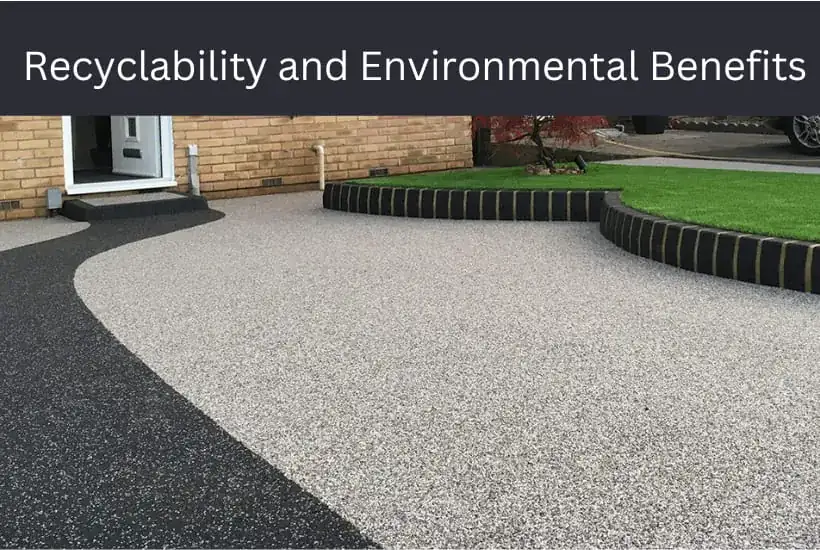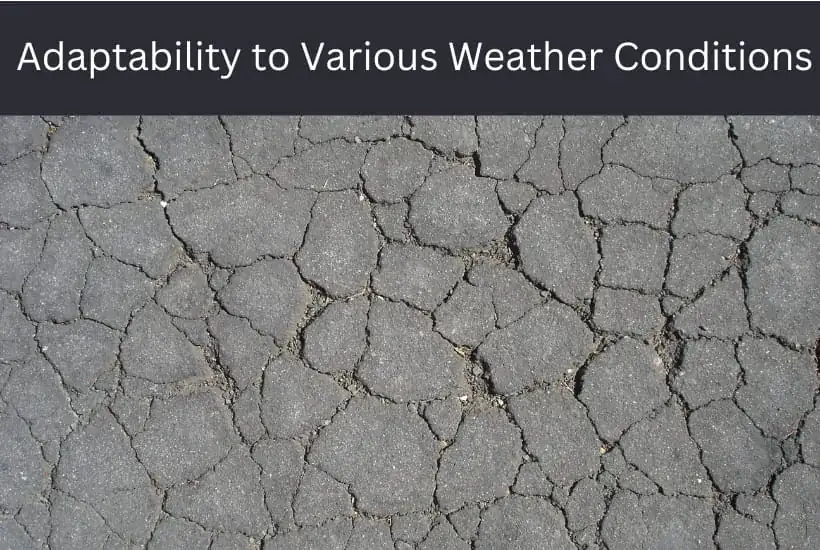The composite material known as the benefits of using asphalt concrete, or just asphalt, is mostly used to build roads, highways, parking lots, and airport runways. One of the most popular materials in the building sector is asphalt concrete, which is renowned for its affordability, flexibility, and durability. The composition, advantages, uses, and environmental effects of asphalt concrete are all covered in detail here, along with why it is such a popular material.
What is Asphalt Concrete?
A binder, usually bitumen, a sticky, black, and viscous type of petroleum, is mixed with aggregates, such as crushed rock, sand, or gravel, to create asphalt concrete. The bitumen gives the pavement its long-lasting, waterproof properties by acting as a glue to hold the particles together. This combination is heated and poured to generate a flexible and robust surface suited for a range of construction tasks.
Hot-mix, warm-mix, and cold-mix asphalt are among the different varieties of asphalt concrete. Each variety has unique benefits and is chosen according to the requirements of the project, the surrounding environment, and other considerations.
Key Reasons for Using Asphalt Concrete
1. Durability and Longevity
- The longevity of asphalt concrete is among its most important advantages. Asphalt pavements are made to endure high traffic volumes and to fend off weather elements including rain, snow, and extremely high or low temperatures. Asphalt surfaces are a very dependable choice for infrastructure construction because they may endure for 15 to 20 years or even longer with regular maintenance.
- Flexibility: Unlike rigid pavements like concrete, asphalt has inherent flexibility, which allows it to adjust to minor shifts in the ground without cracking. This makes asphalt ideal for areas where ground movements, temperature fluctuations, and traffic loads are common.
- Resistance to Wear: Asphalt concrete can withstand heavy loads and resist abrasion from vehicles, making it highly suitable for highways and busy urban roads.
2. Cost-Effectiveness
Due to its affordability for both initial installation and ongoing maintenance, asphalt concrete is frequently selected for large-scale constructions.
- Lower Initial Cost: Compared to other materials like concrete, asphalt is typically more affordable to produce, transport, and install.
- Low Maintenance Costs: Routine maintenance, such as seal coating and minor patching, is generally sufficient to keep asphalt surfaces in good condition. When more extensive repairs are needed, asphalt’s recyclability makes it more cost-efficient than other materials.
3. Recyclability and Environmental Benefits

One of the most recycled materials in the world is asphalt; by using recycled asphalt, fewer new materials are needed, preserving natural resources. Because reclaimed asphalt pavement (RAP) can be recycled into fresh asphalt mixtures, the method is more ecologically friendly and sustainable.
- Reduced Landfill Waste: Recycling asphalt minimizes the amount of construction waste that ends up in landfills.
- Lower Energy Consumption: Using recycled asphalt requires less energy than creating new material from scratch, reducing the carbon footprint of construction projects.
- Environmental Impact: Asphalt concrete’s recyclability also makes it an environmentally friendly option, as recycled asphalt can be repurposed multiple times without losing its quality or strength.
4. Quick and Efficient Installation
Compared to other paving materials like concrete, which take longer to cure, asphalt installation is comparatively quick.
- Fast Curing Time: Concrete pavements take days to cure, whereas asphalt pavements can be used within a few hours of being laid. Asphalt is a practical choice for high-traffic locations because of its rapid turnover, which minimizes traffic interruptions.
- Reduced Labor Costs: Because asphalt installation is simple, projects may be finished more quickly and with fewer resources, which frequently results in lower labor expenses.
5. Smooth and Comfortable Driving Surface
A smooth, level surface produced by asphalt concrete is safer, more fuel-efficient, and more comfortable for drivers.
- Safety and Noise Reduction: Because asphalt has a flat surface, cars have superior traction, which lowers the chance of sliding and increases safety. Furthermore, asphalt pavements reduce noise, which makes them perfect for cities.
- Fuel Efficiency: Both drivers and the environment benefit from smooth asphalt surfaces because they lessen rolling resistance, which enables cars to use less gasoline.
6. Adaptability to Various Weather Conditions

In areas with a variety of climates, from icy winters to scorching summers, asphalt concrete is especially beneficial.
- Temperature Flexibility: Temperature variations cause asphalt to expand and shrink, lowering the possibility of damage and cracking. Because of its adaptability, it can withstand temperature-related stress, particularly in regions that see freeze-thaw cycles.
- Resistant to Deicing Chemicals: Asphalt is perfect for areas with snowy winters since it can tolerate the application of deicing agents in the winter without suffering major harm.
7. Improved Drainage
By enhancing drainage, properly planned asphalt pavements can lower the likelihood of flooding and hydroplaning on roadways.
- Permeable Asphalt Options: Certain asphalt varieties, including permeable or porous asphalt, permit water to percolate through the surface and into the ground beneath. This makes it a good choice for stormwater management in cities since it lessens runoff and keeps water from collecting on roadways.
- Enhanced Safety: Hydroplaning is less likely on asphalt surfaces with improved drainage, which is crucial for busy roads and highways.
Common Applications of Asphalt Concrete
Because of its strength, flexibility, and longevity, asphalt concrete is widely employed in a variety of applications. Typical applications include:
- Road Construction: From modest residential streets to major highways and interstates, asphalt is most commonly used in road building.
- Airport Runways: Airport runways, which must support the heavy weight of planes, are the perfect place for asphalt because of their flexibility and durability.
- Parking Lots and Driveways: Asphalt is a common material for driveways and parking lots since it is inexpensive, simple to construct, and requires little upkeep.
- Bike Paths and Walking Trails: Asphalt offers a robust and smooth surface that is often utilized for bicycle and pedestrian infrastructure.
Environmental Considerations and Future Innovations
Asphalt concrete is constantly changing to satisfy the demands of the building sector, which is becoming more and more concerned with sustainability. Warm-mix asphalt, which can be made at lower temperatures than conventional hot-mix asphalt, is becoming more and more popular since it uses less energy and emits fewer greenhouse gases. To further improve asphalt’s durability and environmental advantages, new developments are also being investigated, such as adding recycled rubber or plastic to asphalt mixtures.
To increase the material’s lifespan and save maintenance costs, researchers are also looking at self-healing asphalt, a technology that enables the substance to mend itself under specific circumstances. These developments demonstrate asphalt’s versatility and capacity to address upcoming environmental issues.
Conclusion
Particularly in the transportation industry, asphalt concrete continues to be one of the most useful, long-lasting, and economical building materials. It is appropriate for a variety of climates and high-traffic regions due to its special blend of strength, flexibility, and recycleability. Asphalt concrete is an essential component of contemporary infrastructure because of its ease of installation and environmental advantages. It also keeps changing in tandem with sustainability initiatives and technological breakthroughs.







